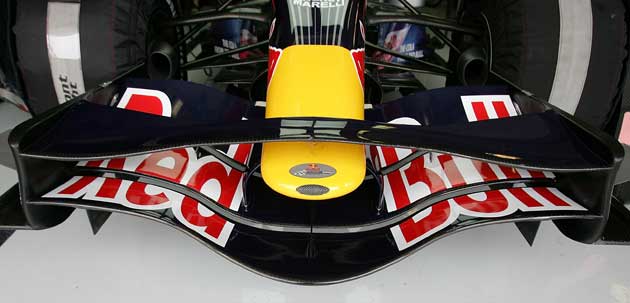Red Bull: it promises energy, but doesn't mention sticky blood...

Your support helps us to tell the story
From reproductive rights to climate change to Big Tech, The Independent is on the ground when the story is developing. Whether it's investigating the financials of Elon Musk's pro-Trump PAC or producing our latest documentary, 'The A Word', which shines a light on the American women fighting for reproductive rights, we know how important it is to parse out the facts from the messaging.
At such a critical moment in US history, we need reporters on the ground. Your donation allows us to keep sending journalists to speak to both sides of the story.
The Independent is trusted by Americans across the entire political spectrum. And unlike many other quality news outlets, we choose not to lock Americans out of our reporting and analysis with paywalls. We believe quality journalism should be available to everyone, paid for by those who can afford it.
Your support makes all the difference.Australian researchers have found that the sugar-free version of Red Bull may increase the danger of blood clots, and creates "sticky" blood, raising the risk of heart attack or stroke. How this affects the sales of Red Bull – last year 3.5 billion cans were sold in 143 countries – is yet to be seen.
* In 1982 the jet-lagged marketing director of an Austrian toothpaste company tasted Krating Daeng, a Thai energy drink. He saw the potential for a product to fight mental and physical exhaustion.
* With a few tweaks to the recipe, Red Bull was launched in Austria in 1987.
* It's named after taurine, the organic acid it contains that was first isolated in a bull.
* In early marketing tests half the tasters declared it disgusting. For years Austrian bars did not sell it, regarding it as medicinal.
* It was launched in the US and Europe in 1997; but it is still prohibited as a soft drink in Norway, Uruguay, Denmark and Iceland.
* The formula contains the same amount of caffeine as a cup of filter coffee, around 80mg. It's meant to taste of mixed berries, but some liken it to sweet cough mixture.
* A variety of celebrities have been associated with the brand, including Britney Spears and Madonna, but these were dubious endorsements: Britney had a can with her when she shaved her head last year. Madonna was quoted in 2006 as saying: "Sometimes I drink Red Bull. That's only when I'm desperate... when I need some serious artificial stimulation."
* When a teenager in Darlington was taken to hospital in February with heart palpitations after consuming eight cans, a Red Bull spokesman recommended only drinking one to two cans per day, for "optimum effect".
* Never missing a product placement trick, the Red Bull name is attached to sporting teams around the world and the now well-known Flugtag.
* The sugar-free version of the drink was launched in 2003, and this year, Red Bull diversified with Simply Cola, which claims to be "strong and natural" with no chemicals. After the findings of this new research, Red Bull may need all the natural credentials it can get.
Join our commenting forum
Join thought-provoking conversations, follow other Independent readers and see their replies
Comments